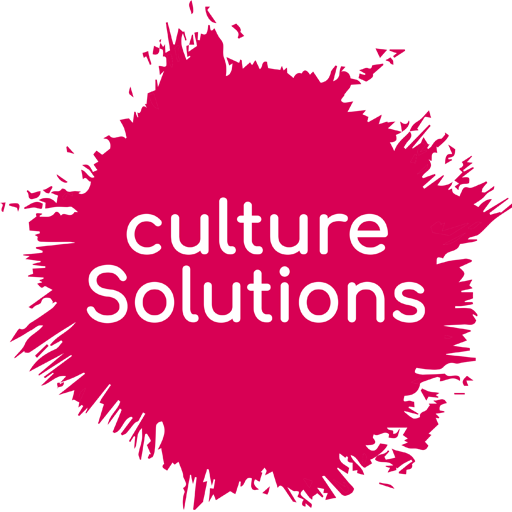7 years of culture Solutions’ analyses echoed in the Culture Compass

By Elise Cuny and Damien Helly
The Culture Compass for Europe, released last week by the European Commission, is a significant and welcomed milestone for EU international cultural relations (ICR). Over recent years, our collaborators have monitored and highlighted the growing importance of ICR for the EU’s external partnerships, as well as the need to address internal and external cultural challenges in a coordinated manner. Seeing these core arguments now embedded in the Culture Compass represents both a success and a meaningful step forward.
Below, we outline 10 key strategic directions mentioned in the Compass that reflect research and analyses produced by culture Solutions since its creation in 2018:
- Update of the 2016 Joint Communication “Towards an EU strategy for international cultural relations”: Since its Composing Trust report in 2019, culture Solutions has argued that the approach of the 2016 Communication required some adjustment and scale-up to match rapid changes in global and European geopolitics and international affairs (increased conflictuality, threats to democracy, rise of illiberal regimes, acceleration of technology-related threats, shaken transatlantic relations, etc.). cS teams are willing to engage in the review process of the 2016 communication and contribute to its update.
- Renewed recognition of the need to prioritise culture in an era of rapid and complex changes: Back in 2022, we analysed the need to dedicate 1 billion euros to ICR in the 2021-2027 EU MFF. We then proposed a European Culture Facility to address both cultural and climate challenges, for the EU to avoid international audiences’ indifference — or even resentment. We have examined these challenges through the lens of Africa–Europe cultural relations: both continents face growing risks linked to foreign information manipulation and interference. Our work adopts an approach rooted in ICR values to prevent any risk of instrumentalisation.
- Culture for climate action: We suggested a EU Global Culture and Climate Change Initiative and looked at the international dimension of the New European Bauhaus. More recently, we proposed ways in which EU cultural actors can contribute to Creative Climate Action.
- Culture as a driver of peace: In line with the Culture Compass’ assertion of peace as key part of the Union’s raison d’être, culture Solutions has examined the complex links between culture, crisis or conflict, and peace (e.g. in Iraq and Yemen) through the lenses of trust-building, values, memory processes, cultural heritage protection, and the role of artists. Immediately after Russia’s full-scale invasion of Ukraine, we put forward a proposal for a Culture for Peace Initiative, bringing together the House of Europe in Kyiv, artists, and cultural organisations from Ukraine and Russia.
- AI-related intellectual property and cultural diversity issues: Our analyses have put forward an Equitable Digital Approach for International Cultural Relations, assessing the potential for the EU to position itself as a global normative and creativity leader in this field. Much cooperation remains to be explored to strengthen the EU’s image as a defender of copyright and authorship. We have also called for a stronger digital cultural cooperation to ensure discoverability of diverse cultural content online.
- EU cultural data hub to collect and analyse cultural information: As a research group, culture Solutions has produced independent rigorous assessments of European cultural cooperation programmes and projects, thereby ensuring continuity and institutional memory. cS has acted de facto as an EU ICR observatory (called for by former MEP and Chair of CULT committee Silvia Costa). Our latest brief also suggests the creation of an Observatory for Africa–Europe Cultural Relations.
- Mobility and visa barriers between European and international artists: We have repeatedly highlighted the strategic significance of mobility and visa barriers, drawing on lived experiences and proposals from local cultural partners seeking fairer cultural relations with the EU. Our podcasts shed light on the importance of intra-regional mobility and exchanges in EU ICR projects, especially for youth.
- Team Europe and EU added value: Deeper and more genuine cooperation between EU institutions and EU Member States can only strengthen the Union collectively. Applying European unity to cultural action and ICR does not replace national prerogatives; rather, it is an influence multiplier for the protection and promotion of the diversity of cultural expressions. In a 2024 public hearing of the European Parliament, we suggested widening the EU Council’s qualified majority to external cultural action. We have long analysed the need for the creation of a Community of Practice for Culture within ‘Team Europe’ — gathering EU Delegations and Member States — and have fostered discussions to allow cultural and academic communities to engage with the idea. This will require concrete and dedicated budgetary allocations and staffing measures for the EU Delegations.
- Innovative cultural partnerships: We have closely monitored developments in Africa–Europe cultural relations and flagged the Museum Partnerships as innovative in design and form, driven by cultural actors themselves, connecting past and future, strengthening both continental and intercontinental cooperation, and mainstreaming cultural dimensions in Global Gateway’s strategic areas (e.g. digitalisation).
- No double standards in cultural relations: By contributing to the Pact for the Mediterranean discussions and defending its cultural dimension, our members underscored the need for the EU to rebuild trust with civil society and cultural actors in the MENA region — essential for a long-term partnership. As previously observed, the EU must consider whether it is sustainable to maintain a highly positive image in some parts of the world while, in others, it remains associated primarily with a security- and migration-centred narrative. In this regard, the Culture Compass’ ambition to scale up cultural cooperation with enlargement and neighbourhood regions should be matched with an adequate level of engagement with the rest of the world, to position the EU as a trusted cultural partner on a global scale.
The views expressed in this article are personal and are not the official position of culture Solutions as an organisation.

